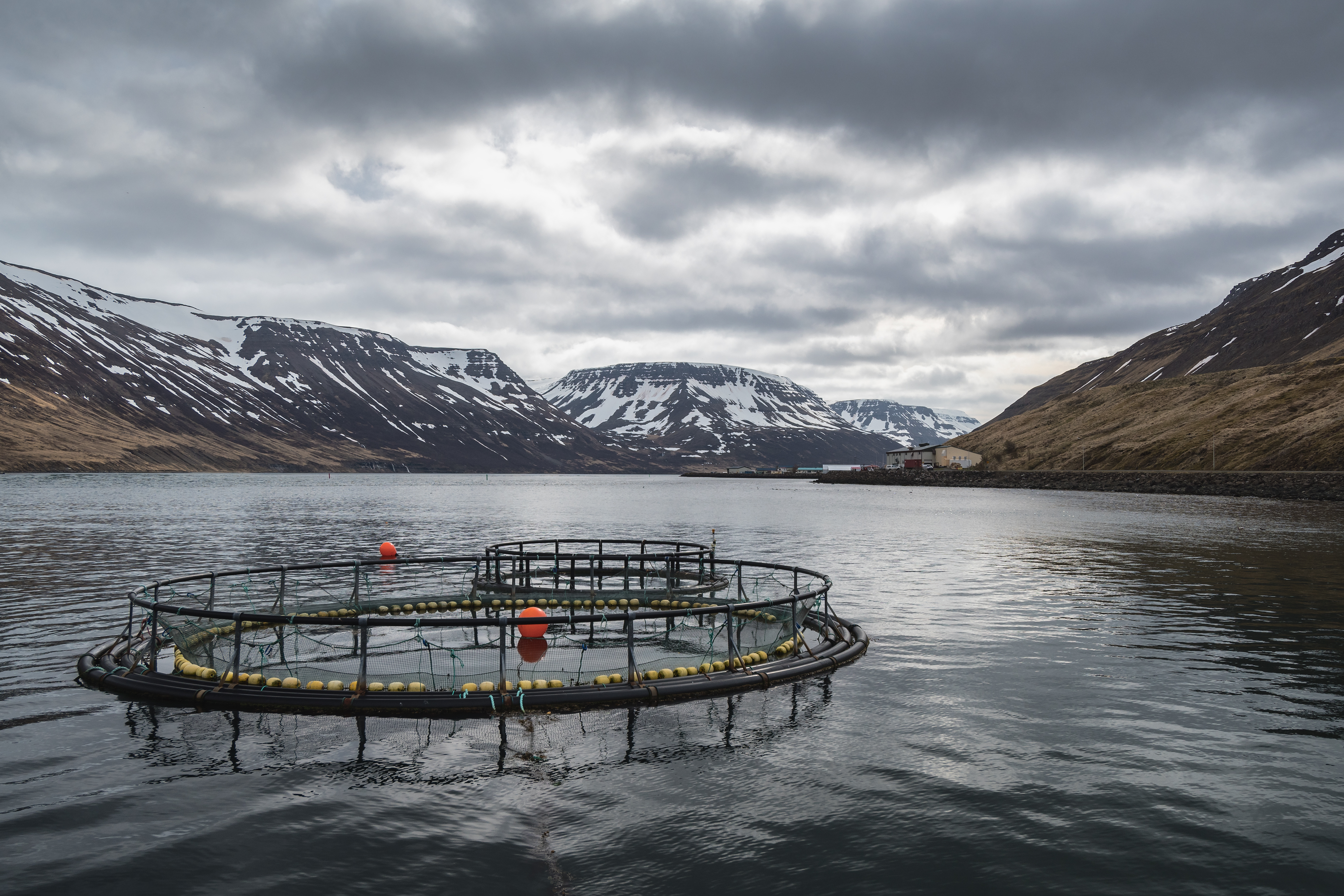Iceland’s fish farming regime facing radical shake-up

Iceland is planning to limit salmon farming to no more than one company per fjord. The proposal follows growing concern over escapes and comes as part of a draft report that also includes major changes to the fee charging and taxation system.
The draft policy looks set to be be firmed up over the next few months. As well as the one-company limit, another of the proposals is that the current system be amended to reflect world market prices.
The report follows a detailed analysis of the industry carried out by the Boston Consulting Group for Iceland’s Ministry of Food earlier this year.
Icelandic aquaculture exports (mainly salmon and Arctic char) were worth ISK 49bn (£290m) last year.
The Boston study estimated that the industry output could be worth up to ISK 430bn (£2.5bn) by 2032.
The draft report says: “It is proposed to make changes to the current [fee] arrangement, as the operating environment has changed.
“But the changes in world market prices have also been significant. Fees have also increased in the neighbouring countries, the Faroe Islands and Norway.
The changes are justified in such a way that the operators in farming can better deal with increases, as the world market price of salmon has risen significantly.”
The report says the current collection system is unable to reflect fluctuations in world market prices.
It adds: “It is clear that auctioning farming areas and biomass is poorly feasible compared to the current legislation, and there is great uncertainty about price formation and the implementation of such auctions.”
“Therefore, it is clear that compensation for the use of marine areas will be achieved to a small extent through tenders, as was proposed. It is proposed that the levy follow changes in world market prices more closely than has been the case.”

